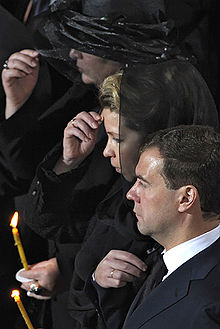"The LORD has made known his victory; * his
righteousness has he openly shown in the sight of the nations." Psalm 98:3
As you might
have noticed, just now I made the sign of the Cross over myself. I do it quite often. I sat down and counted this week, and
discovered that in the usual course of celebrating the Eucharist on Sunday, I
make the sign of the Cross not once or five or ten times, but 27 times, as well
as making it over each of you individually with the wafer when you come forward
to receive Holy Communion. Making the
sign of the Cross is a ritual that accompanies many different words and
movements in the course of the liturgy, including nearly all the most important
ones. I use the Cross when I ask God to
be with me in reading and hearing the Gospel, when I speak His word absolving
your sins, when I bless the bread and wine, when I speak His blessing over all
of you at the end of the service, and at quite a few other times besides
these.
And of
course, the Cross isn’t just here among us in the ritual action, we also
worship facing a Cross. The service
begins when the choir and the sacred ministers come in, proceeded by a
Cross—and we brought the beautiful jeweled one out of the vault to mark this
special day. There are crosses on the
windows and the paintings, the arches and the plates. The silver cruets we use at the Altar have
crosses on their tops. My vestments
today are adorned with a half-dozen of them.
There’s one on the steeple, and the whole building, for that matter, is
shaped like a Cross.
Now, if
you’re new here, all these crosses are likely to strike you as rather odd,
maybe as a kind of symbolic overkill.
Surely, we could mix it up a bit, couldn’t we? What is it about the Cross that urges us
Christians to plant it everywhere, to mark everything with it? What does it
mean for us?

